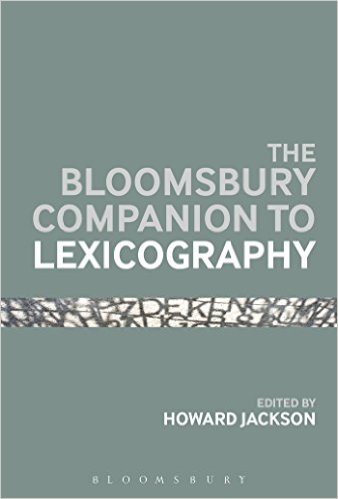 The Bloomsbury Companion to Lexicography, edited by Howard Jackson (Bloomsbury Academic, 2013), 420 pages.
The Bloomsbury Companion to Lexicography, edited by Howard Jackson (Bloomsbury Academic, 2013), 420 pages.
Lexicography can have two different meanings: (1) the compilation of dictionaries, and (2) the study of dictionaries. This volume is primarily addressed to the latter group, who are sometimes called metalexicographers. There are various issues involved in the compilation of dictionaries, and metalexicographers study those issues to clarify the practice for us. It is therefore directly relevant for those who do lexical work themselves, and more indirectly relevant for those of us who use lexicons every day (BDAG, HALOT, LSJ, etc.).
This Bloomsbury companion is unique from other companions in the series. Most companions are a hodgepodge of essays on various issues, with, at best, essays grouped by section. But this companion has a more discernible structure that is sure to be most helpful for students entering the field.
Howard Jackson introduces the book with a brief look at lexicography and metalexicography and then summarizes the contributions to the book. Paul Bogaards follows up with a useful essay on the history of research in lexicography. For anyone who wants to get caught up to speed on lexicography, Bogaards’ essay is the place to start. One will see that lexicography has only been a modern discipline for around 50 years, and there is no comprehensive system of study. Rather, only a variety of studies with various methodologies have been undertaken.
Section three focuses on research methods and problems. Essays are included on researching lexicographical practice, methods in dictionary criticism, and researching users and uses of dictionaries. Each of these essays contributes to our knowledge of how dictionaries work and how users of dictionaries work. In order to be completely self-aware of our use of lexicons such as BDAG and HALOT, we must understand how we approach them and whether we are correct in the way we approach them. There is much similarity here between our approach to lexicons and our approach to hermeneutics in general: self-awareness is key.
Section four is the largest and contains 10 essays on current research and issues. Some of these essays are quite important. Adam Kilgarriff discusses using corpora as data sources for dictionaries. One can immediately sense the relevance of Kalgarriff’s discussion, since we students of the Bible are so often pulling from Philo, Josephus, and other relevant corpora for word studies. Arleta Adamska-Salaciak discusses issues related to compiling bilingual dictionaries, while Robert Lew writes on identifying, ordering, and defining senses. At this point there is some bleed-over into lexical semantics, which is a welcome bridge to find in this volume. Lastly, Tadeusz Piotrowski asks whether there is a theory of lexicography, answering in the affirmative because our current place in lexicography is so revolutionary that past practice is not a guide for the future.
The last three sections are brilliantly included for students: a section on resources, a glossary of lexicographic terms, and an annotated bibliography by the editor Jackson. If every companion or guide contained such resources (even an annotated bibliography), we should be so lucky. My one complaint about the annotated bibliography is that not all entries are annotated, and many simply have a one sentence annotation about what the resource contains; more evaluation would have been helpful.
In sum, this volume is useful for students who know little about lexicography, or for professors who use lexicons consistently and want to become more aware of the issues involved in approaching them. I certainly learned that there are more issues involved in creating and using lexicons than knew before, and among the quality essays, I am left with a guide to resources and an annotated bibliography to further my study of the field. I would recommend this companion to anyone interested in being more conscientious about using lexicons.
Find it here on Amazon.

One comment